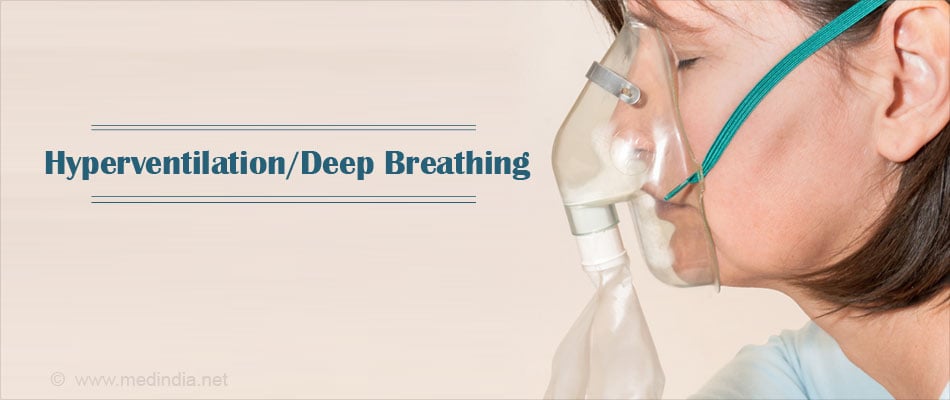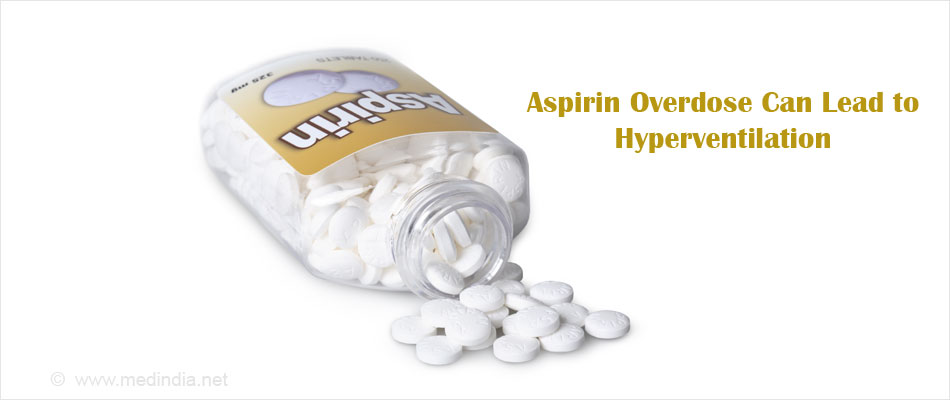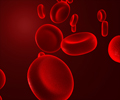- Information on Hyperventilation - (https://medlineplus.gov/ency/article/003071.htm)
- Panic Attacks and Panic Disorders - (http://www.mayoclinic.org/diseases-conditions/panic-attacks/basics/symptoms/con-20020825?p=1)
What is Hyperventilation?
Hyperventilation is a fast and/or deep irregular breathing which can be due to a number of causes. It is often triggered by anxiety, depression, fear and stress. It also occurs when the body detects a reduced oxygen level or an increase in carbon dioxide level in the blood.
Rapid breathing leads to excess loss of the carbon dioxide and hence, decreases the carbon dioxide levels in the blood resulting in a condition called hypocapnia. This can lead to a rise in the blood pH, a condition called respiratory alkalosis.
Respiratory alkalosis can cause many symptoms like tingling in the hands and feet, headache, dizziness, spasms of the muscles, seizures and weakness. These symptoms may be more obvious to the patient, who may not notice the hyperventilation. The patient may also experience symptoms of chest pain, palpitations, shortness of breath, confusion, bloating and sleep disturbances.

What are the Causes of Hyperventilation?
The following conditions can cause hyperventilation:
- Anxiety: Feeling anxious is normal, and many get anxious when starting a new work, taking an important decision or before an exam. Anxiety can cause hyperventilation and, it is more among females. If anxiety causes distress and disturbs the normal life, it is referred to as an anxiety disorder. Stress can also cause hyperventilation.
- Panic Attack: An abrupt onset of intense fear leading to a severe physical reaction in the absence of an apparent cause is called a panic attack. A panic attack is not life-threatening but often affects the quality of life. The patient may present with symptoms like a sense of danger, hot flashes, palpitations, shaking, hyperventilation, headache, nausea, chills, tingling and numbness, and dizziness. Fear about the recurrence of the panic attack can be daunting for the patient. Medications are used to prevent and treat a panic attack.
- Pregnancy: Hyperventilation in pregnancy is common. As the pregnancy advances, the uterus (womb) grows bigger and can lead to hyperventilation.

- Heart conditions: Conditions like heart attack and heart failure can cause hyperventilation. It is important to rule out any heart condition in a hyperventilating patient.
- Lung Conditions: Conditions like asthma, chronic obstructive pulmonary disease (COPD) and pulmonary embolism can cause hyperventilation. Decrease in oxygen or increase in carbon dioxide content in the blood can stimulate hyperventilation.
- Metabolic Acidosis: Conditions like diabetic ketoacidosis, lactic acidosis, chronic kidney disease or acute kidney injury cause metabolic acidosis, that is, they reduce the pH of the blood. To compensate the acidosis, the lungs hyperventilate.
- Infection: Infections can lead to a rise in the temperature (fever) which stimulates the brain to hyperventilate. Infections like pneumonia and sepsis (blood infection) cause hyperventilation.
- Drugs: Aspirin is an acidic drug, it causes metabolic acidosis on overdose intake which can lead to hyperventilation. Drugs like acetazolamide, topiramate, sulthiame and zonisamide can also cause hyperventilation.

- Severe Pain: Severe pain after trauma can cause hyperventilation.
- Bleeding: Severe bleeding can cause hyperventilation.
How is Hyperventilation Treated?
The main goal is to increase the carbon dioxide levels in the blood during the episode of hyperventilation. This can be achieved in two steps.
- The patient needs to be reassured in a calming tone.
- The patient should breathe with the lips pursed or with one nostril (by closing the mouth and another nostril). This helps to increase the carbon dioxide and to reduce the symptoms due to hyperventilation induced respiratory alkalosis.
Diagnosing the cause to provide appropriate treatment is essential. Tests like measuring the blood levels of carbon dioxide and oxygen, electrocardiogram, chest x-ray, chest CT scan, ventilation/perfusion scan of lungs may be requested. The cause has to be treated to prevent further episodes.
- If hyperventilation is due to anxiety or panic attacks, consulting a psychiatrist or psychologist is beneficial.
- Breathing exercises help to relax, and it is essential to learn them.
- Regular exercise and meditation help to prevent the further attacks of hyperventilation due to anxiety and stress.
- Rebreathing from the paper bag is no more recommended.











